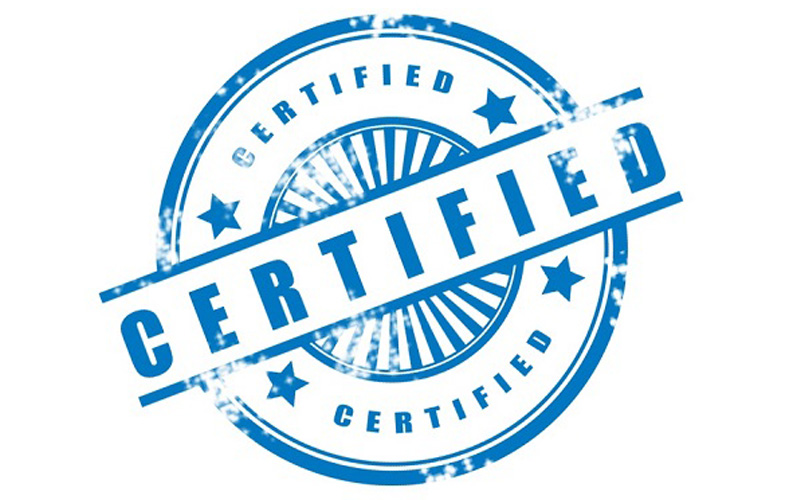As an insurance and risk management recruiter and industry-specific career coach with 30+ years of experience, I am frequently asked about certifications and whether there is value in obtaining them.
The question I most often hear is: “how will I know which certifications will be necessary or helpful to advancing my career if I don’t know where I’ll be in my career further down the road?”
My advice is that a broader view should be taken, whereby certifications are seen as important continuing education for professional advancement.
Certifications may help prepare you to successfully address day-to-day challenges if you are on the way up in your career. They can also help expand your knowledge of what’s transpiring within your industry. For example, as an Underwriter or Broker, you must have a deep understanding of insurance. Therefore, a Chartered Property Casualty Underwriter (CPCU) certification is essential. However, if you want to gain a broader understanding of the issues your clients are facing, then having an Associate in Risk Management (ARM) and the newly created RIMS-Certified Risk Management Professional (RIMS-CRMP) certifications would be quite beneficial as well.
In addition, having certifications is seen as a differentiator because they demonstrate your commitment to your profession. When interviewing for a new position, certifications can help set you apart from other candidates who lack them. This may make all the difference if an employer is trying to decide between hiring you or another applicant. Certifications also provide you with stepping stones to establishing professional credentials and building a solid foundation for a leadership role.
In terms of which particular certifications I consider important, that depends on what part of the industry you’re in. As I indicated above, I think a CPCU certification is essential for Underwriters. The CPCU is also valuable for brokers and corporate risk management professionals as a demonstration of their in-depth knowledge of insurance. I recommend that corporate risk management professionals also look into the ARM or Canadian Risk Management (CRM) certifications, along with the RIMS-CRMP. The three-course ARM or CRM provide a broad overview of the field. Either designation will also provide you with a solid foundation for the RIMS-CRMP certification, in that each can be used in lieu of some of the RIMS-CRMP experience requirements.
The RIMS-CRMP certification focuses on developing a more strategic approach to managing risk – a skill that is vitally important and a true difference-maker in the corporate arena. This certification is geared toward risk professionals who aspire to a leadership role where they manage both insurance and enterprise risk. It validates the knowledge, competency levels, and continuing education that are critical to this role and it highlights an individual’s strategic mindset with respect to managing risk.
Below are comments about the RIMS-CRMP designation from a few risk professionals I spoke with:
“Managing risk more strategically is the future of the discipline. The RIMS-CRMP is the key to this specialty achieving the much coveted status as a profession. Whether or not that ever happens is less important than practitioners getting engaged in influencing strategic planning and decision-making. The RIMS-CRMP reinforces the key correlation between managing risk well and delivering desired levels of performance. Achieving this designation validates the risk leader’s knowledge and understanding of this and other key principles of progressive risk management. This certification should become the “must have” credential for risk leaders with big aspirations.”
Chris Mandel, RIMS-CRMP
SVP, Strategic Solutions, Sedgwick & Director, Sedgwick Institute
“Working in an organization that embodies ERM has been rewarding. For me, the RIMS-CRMP certification represented a good way to demonstrate my proficiency in execution of the core competencies that define the Risk Management process in our company: Risk Identification, Risk Analysis, Plan Design, and Implementation. I believe the examination’s design is relevant, and it does a great job mirroring and testing the industry acumen of these four critical areas.”
Mitch Aucoin, MBA, RIMS-CRMP
Senior Director, International Insurance, Marriott International Inc.
“Unlike professional designations that test on a specific course of instruction, the RIMS-CRMP tests on the body of knowledge, experience, and competence in providing risk management advice at a corporate strategic level. Receiving the RIMS-CRMP credential has meant confirmation to me personally – and to others – not only of my professional skills, knowledge, and competence in the risk management profession, but also of my ability to add value at a higher strategic risk management skill level.”
Debbie Hinton, CCLA, ARM, RIMS-CRMP
Assistant Director of Property & Liability Risk Management, University of Virginia.
“The RIMS-CRMP is an excellent example of the synergy between risk management and strategic management for an organization. Understanding where risk management fits best in the strategic plan for the organization will help risk managers increase their value and engagement with the C-Suite.”
Michael W. Simmons, ARM, RIMS-CRMP
Director, Risk Management, Safety and Police Services; Riverside Community College District
“Risk Management today is far more complex, and organizations with risk practitioners who embrace the inclusion of enterprise risk in their strategic goals are realizing opportunities. The RIMS-CRMP is a respected credential that provides Risk leaders with the viable competencies necessary to intuitionally think of organizational risk more broadly and strategically. These skills are essential when engaging in ERM within an organization.”
Alonzo Johnson, MBA, RIMS-CRMP
Risk Management Officer, Las Vegas Valley Water District

